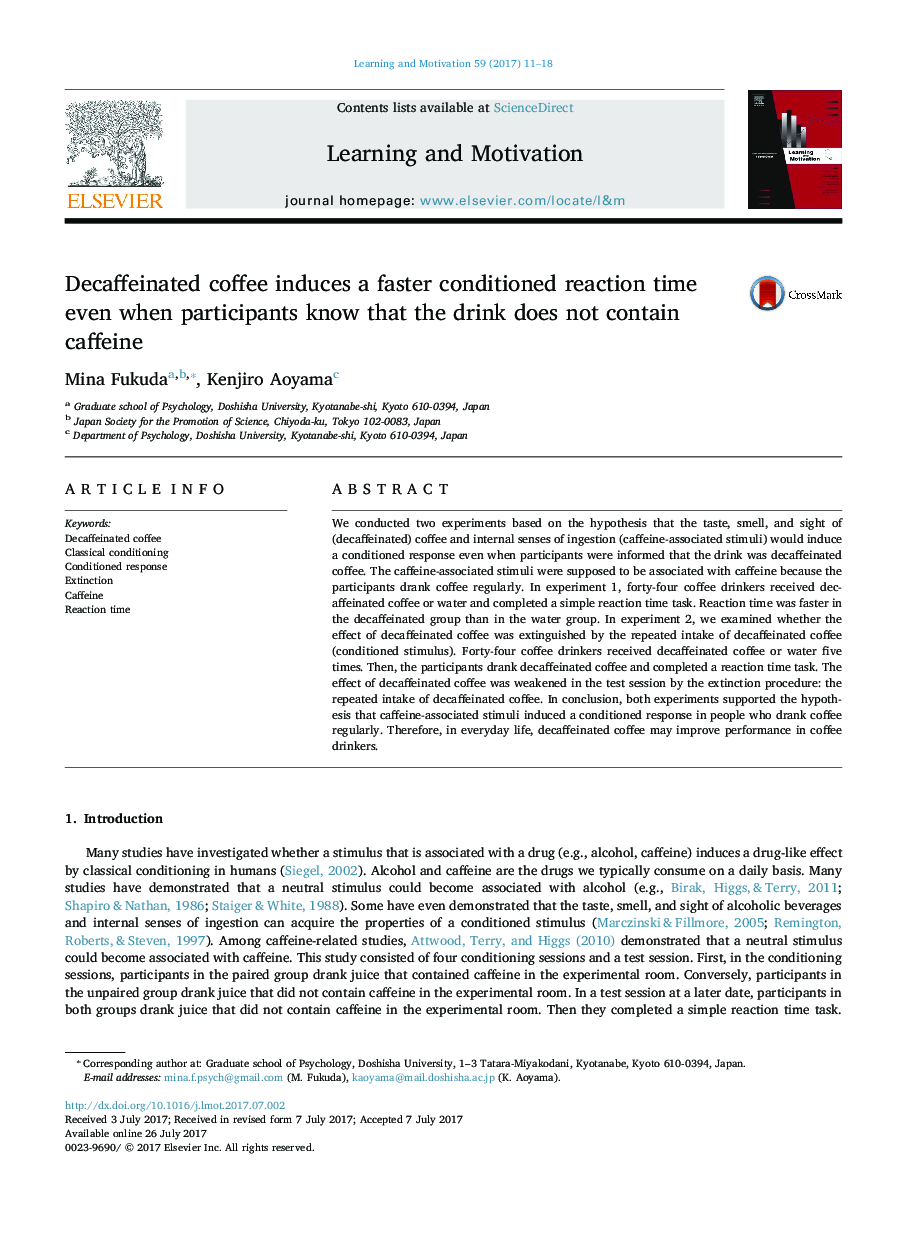| کد مقاله | کد نشریه | سال انتشار | مقاله انگلیسی | نسخه تمام متن |
|---|---|---|---|---|
| 5040098 | 1473509 | 2017 | 8 صفحه PDF | دانلود رایگان |
We conducted two experiments based on the hypothesis that the taste, smell, and sight of (decaffeinated) coffee and internal senses of ingestion (caffeine-associated stimuli) would induce a conditioned response even when participants were informed that the drink was decaffeinated coffee. The caffeine-associated stimuli were supposed to be associated with caffeine because the participants drank coffee regularly. In experiment 1, forty-four coffee drinkers received decaffeinated coffee or water and completed a simple reaction time task. Reaction time was faster in the decaffeinated group than in the water group. In experiment 2, we examined whether the effect of decaffeinated coffee was extinguished by the repeated intake of decaffeinated coffee (conditioned stimulus). Forty-four coffee drinkers received decaffeinated coffee or water five times. Then, the participants drank decaffeinated coffee and completed a reaction time task. The effect of decaffeinated coffee was weakened in the test session by the extinction procedure: the repeated intake of decaffeinated coffee. In conclusion, both experiments supported the hypothesis that caffeine-associated stimuli induced a conditioned response in people who drank coffee regularly. Therefore, in everyday life, decaffeinated coffee may improve performance in coffee drinkers.
Journal: Learning and Motivation - Volume 59, August 2017, Pages 11-18
